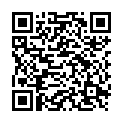|
|
|
| Module code: E944 |
|
2V (2 hours per week) |
|
3 |
| Semester: according to optional course list |
| Mandatory course: no |
Language of instruction:
German |
Assessment:
Oral examination
[updated 05.06.2025]
|
E1944 Electrical Engineering and Information Technology, Master, ASPO 01.04.2019
, optional course, technical, course inactive since 28.09.2020
E944 Electrical Engineering, Master, ASPO 01.10.2005
, optional course
E1944 Electrical Engineering, Master, ASPO 01.10.2013
, optional course, technical, course inactive since 15.10.2015
|
30 class hours (= 22.5 clock hours) over a 15-week period.
The total student study time is 90 hours (equivalent to 3 ECTS credits).
There are therefore 67.5 hours available for class preparation and follow-up work and exam preparation.
|
Recommended prerequisites (modules):
None.
|
Recommended as prerequisite for:
|
Module coordinator:
Prof. Dr. Marc Klemm |
Lecturer:
Prof. Dr. Marc Klemm
[updated 14.04.2013]
|
Learning outcomes:
After successfully completing this course, students will have increased their knowledge in the field of high-voltage measurement technology and current measurement technology in high-voltage systems. They will be able to solve high-voltage measurement problems and carry out measurements and tests with the equipment commonly used in high-voltage laboratories and power supply systems, as well as analyze errors made by measurement systems.
[updated 05.06.2025]
|
Module content:
- Recording technology:
Oscilloscopes, measuring cables, EMC;
- Measuring voltage:
Measuring circuit, ohmic and capacitive voltage dividers; non-conventional measuring methods;
Measuring high DC and AC voltages; measuring high voltages with the sphere gap;
- Measuring high, quickly changing currents:
Low-resistance measuring resistors; Rogowski coils; Hall generators; non-conventional measuring methods;
- Other high-voltage measurements:
Voltage tests on extended samples; tan d measurements
[updated 05.06.2025]
|
Teaching methods/Media:
Blackboard, overhead projector, lecture notes
[updated 05.06.2025]
|
Recommended or required reading:
Beyer, Zaengl, Böck; Möller; Hochspannungstechnik, Springer-Verlag
A. Küchler; Hochspannungstechnik; Springer-Verlag
A. Schwab; Hochspannungsmeßtechnik; Springer-Verlag
[updated 05.06.2025]
|


